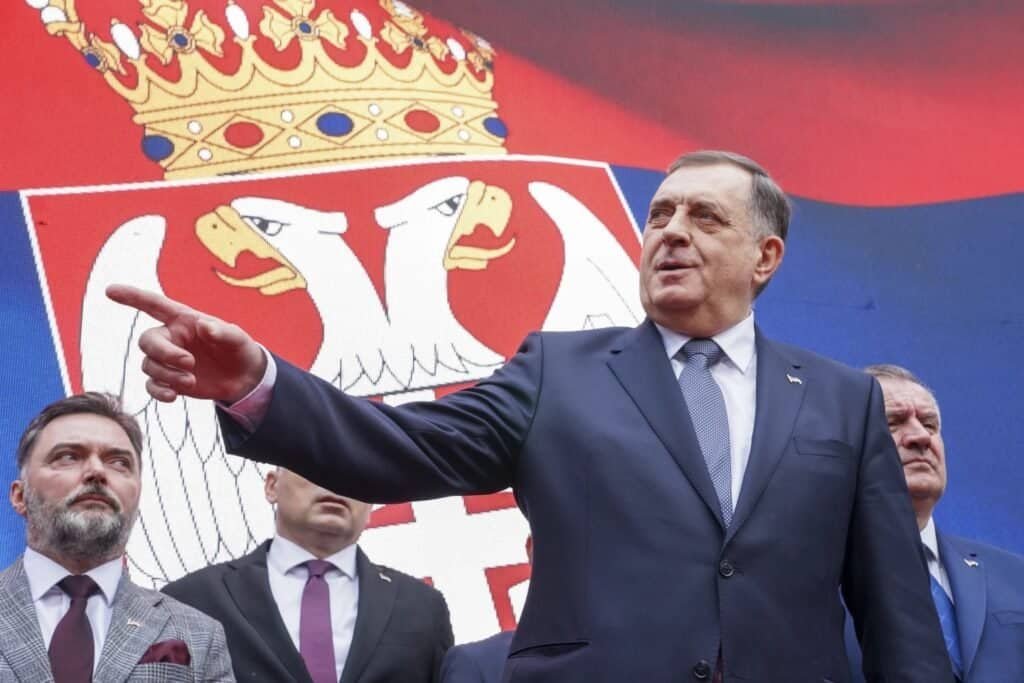The Constitutional Court of Bosnia and Herzegovina sentenced Republika Srpska President Milorad Dodik to six months of suspended imprisonment and issued a ban on holding any public office for at least two years, in a landmark ruling issued on July 18, 2025.
Dodik, long accused of fueling ethnic division and undermining the country’s fragile institutions, was found guilty of repeatedly defying the court’s rulings and encouraging the noncompliance of state-level decisions. Regional analysts have described the verdict as one of the most serious legal confrontations between Bosnia’s central government and the Republika Srpska entity since the 1995 Dayton Agreement.
⚖️ Defying the Bosnian state
Dodik was prosecuted after he passed a law through the RS Assembly declaring that rulings from Bosnia’s Constitutional Court would no longer apply within the Serb entity. Legal experts labeled the move a de facto declaration of legal independence.
He publicly stated,
“Republika Srpska is sovereign in spirit, and soon it will be sovereign in reality.”
This blatant defiance of the state’s legal framework drew immediate condemnation from international stakeholders, including the U.S. Embassy in Sarajevo, which called Dodik’s actions a “direct threat to regional stability.”
🚨 EU and U.S. react with urgency
Both the European Union and the United States praised the court’s decision, framing it as a crucial defense of Bosnia’s constitutional order.
A spokesperson from the U.S. State Department said,
“Mr. Dodik’s actions are a clear violation of Bosnia’s rule of law and undermine the country’s hard-won peace.”
The EU ambassador to Bosnia added that the ruling “sends a strong message: no political leader is above the law.”
🪧 Protests, blockades, and threats of institutional collapse
The verdict sparked mass protests in Banja Luka, where hundreds of Dodik supporters took to the streets chanting anti-Sarajevo and anti-EU slogans. Officials in Republika Srpska threatened to block cooperation with central authorities, including courts, customs, and policing systems.
Several hardline members of the RS Assembly proposed “unilateral withdrawal from all state institutions”, a move that would plunge the country into a full-blown constitutional crisis.
📉 Peace and stability at risk
Security experts have warned that the developments could escalate into a serious interethnic conflict, with ripple effects across the region. The High Representative for Bosnia, Christian Schmidt, said he is prepared to activate emergency powers to preserve the country’s constitutional order if needed.
Sources close to NATO and KFOR confirm that monitoring along the Serbia-Bosnia border has intensified, amid fears of rising foreign influence and coordinated political unrest.
Intelligence assessments suggest that Russia may be increasing its support for Dodik-aligned factions in an attempt to destabilize Bosnia and derail its path toward Western integration.



